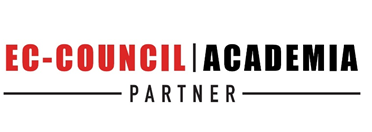Hyde Park Middle School
The Academy of Science and MathematicsLearning for Mastery
Computer Science Discoveries
Hyde Park is now partnered with EC-Council to provide the Essentials Series of Cybersecurity classes to our students. The Essential Series classes will provide students the baseline skills across the areas of Network Defense, Ethical Hacking and Digital Forensics.
The EHE program covers the fundamental concepts of information security and ethical hacking.
Course Objectives
Students who successfully complete this class will be able to:
1. Discuss the key issues plaguing the information security world and review various information security laws and regulations.
2. Comprehend Cyber Kill Chain Methodology, hacking and ethical hacking concepts, hacker classes, different phases of a hacking cycle, and assess essential ethical hacking tools.
3. Examine various information security threats and vulnerabilities, identify different types of malware and perform vulnerability assessments.
4. Explain and use different password cracking, social engineering, insider threats, and identity theft techniques, and discuss their countermeasures.
5. Examine various network-level attacks, including sniffing, denial-of-service, and session hijacking, and discuss their countermeasures.
6. Examine various application-level attacks, including webserver exploitation, OWASP top10 attacks, and SQL injection, and discuss their countermeasures.
7. Discuss different types of wireless encryption, examine wireless threats and attacks, and suggest countermeasures.
8. Describe various mobile platform attack vectors, mobile device management, mobile security guidelines, and identify essential mobile security tools.
9. Discuss IoT and OT concepts, examine various IoT and OT threats and attacks, and suggest countermeasures. 10. Describe various Cloud computing technologies, examine cloud computing threats and attacks, and identify security techniques.
11. Discuss fundamentals of penetration testing, its benefits, strategies, and phases, and examine guidelines for penetration testing.
EHE PROGRAM OBJECTIVES:
1. Application of technical strategies, tools and techniques to secure data and information for a customer or client
2. Adherence to a high standard of ethical behavior
3. Use of research in both established venues and innovative applications to expand the body of knowledge in information assurance
4. Application of principles of critical thinking to creatively and systematically solve the problems and meet the challenges of the ever-changing environments of cyber security
5. Mastery of the skills necessary to move into leadership roles in companies, agencies, divisions, or departments.
Four Standards of Performance:
Always use these standards of performance anytime you write a research paper, respond to a case study or answer discussion threads. These 4 Standards of Performance, when used fully, will produce an excellent paper.
1. Depth of Reflection: Be sure to demonstrate a conscious and thorough understanding of the writing prompt and subject matter. Analyze the evidence from several perspectives, draw conclusions based on evidence, research and/or experience.
2. Sequence your information: Your work has a clear and appropriate beginning, development and conclusion. Most information is organized in a clear and logical way. There is a beginning and a conclusion. Paragraphing and transitions are adequate.
3. Conclusions: Draw conclusions based on evidence, research or experience. Use the context of your readings and the assumptions the author makes.
4. Language Use: Use sophisticated language that is precise and interesting. Sentence structure must be correct to the grammar of the language.
|


